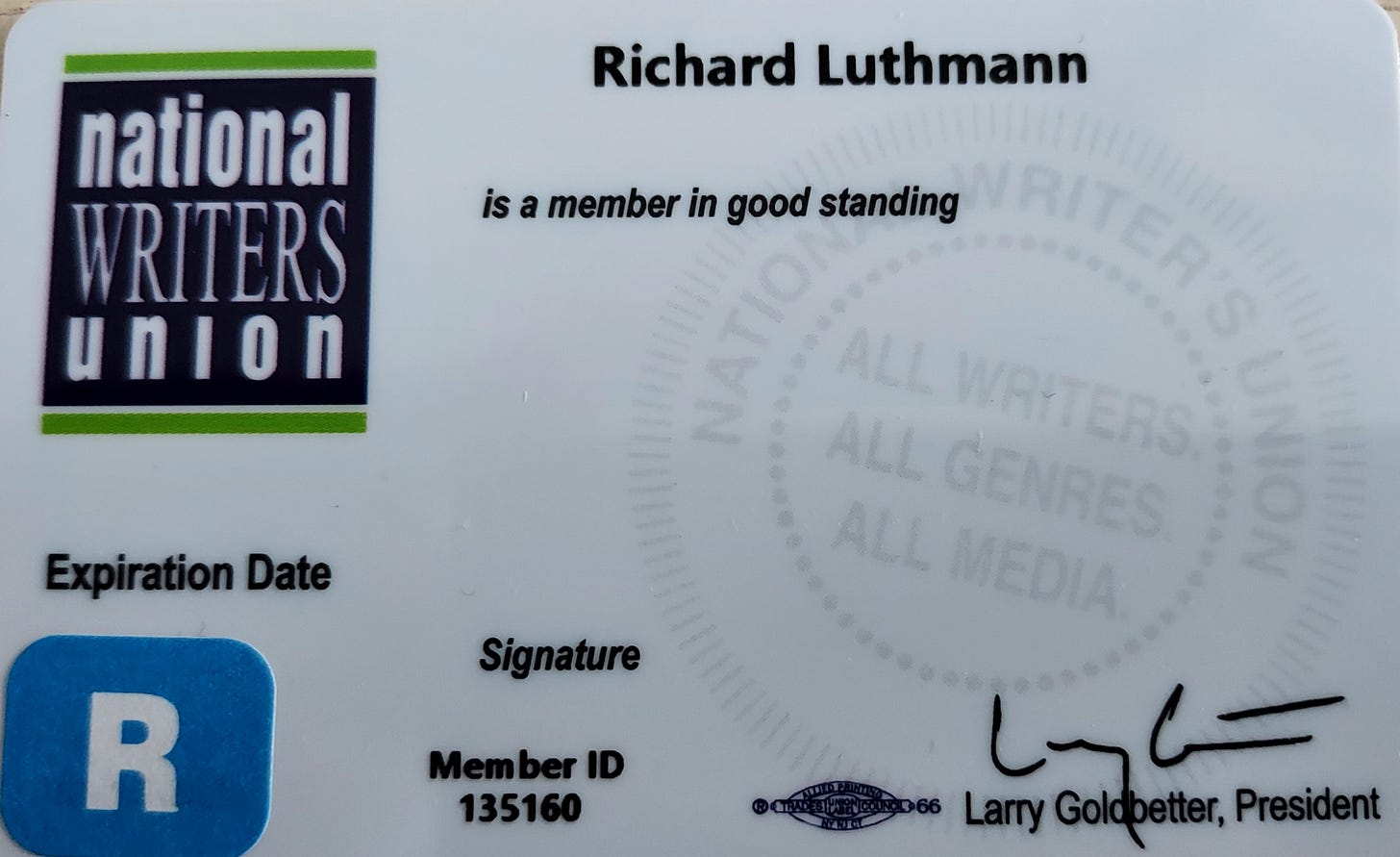Jail Tales: Ever Wonder About the Games Played in Prison Shadows?
Luthmann Sheds Light on Guy Gane's Advice and Adds His Own
Frank Report published a recent article: Guy Gane Jr.’s 50 Commandments of Prison – for Prisoners.
Guy W. Gane Jr. spent 34 years as a registered investment advisor and nine years in federal prison due to an investment fraud case in 2008.
Despite maintaining his innocence, he pleaded guilty to felony wire fraud and money laundering charges.
After being released early in 2020 based on the First Step Act, Gane focused on rebuilding his life. He became an author, speaker, and entrepreneur, creating Prisoncology, a program to help individuals about to enter prison.
Gane also wrote two books and compiled “The 50 ‘Ten Commandments’ of Prison,” a list of guidelines for surviving prison life.
Richard Luthmann is a writer and journalist who also spent time in federal prison. Formerly a New York City attorney, Luthmann was busted by the Feds for wire fraud and extortionate collection of credit conspiracy, and he, too, maintains his innocence. He was sentenced to four years and spent his time as a “jailhouse lawyer.”
Here are his comments on Gane’s Prison Commandments.
By Richard Luthmann
Guy Gane is on point. I don’t disagree with anything he says about “prison rules.”
You spend the first month or so in prison learning the ropes. They do some strange stuff in there. It is counter-intuitive unless you are in tune with jailhouse logic. Then, it begins to make sense.
Always Have Your Paperwork Ready
The one rule I would add is “ALWAYS HAVE YOUR PAPERWORK READY.” By “paperwork,” I mean your Presentence Investigation Report or PSR.
The PSR is a document prepared by the US Probation Office. They are technically an “arm” of the district court. In reality, they usually parrot back all the terrible crap the government has already said about you in a single document, easy for the judge to read.
Other inmates will want to see your PSR to see your charges and make sure you didn’t get a “5K1 letter” (named for section 5K1 of the sentencing guidelines), meaning that you provided “substantial assistance” to the Feds - that you were a RAT.
It’s technically against Bureau of Prisons (BOP) rules to have your PSR on you. But it’s a rule that’s rarely enforced, mainly because most COs (correctional officers) don’t go digging in your legal papers. And even if they do, most of them are half-wit illiterates anyway. They are worried about clocking in, clocking out, and doing as little work as possible in between (while eating all the free food they can).
The PSR is often very helpful when you first arrive. It helps establish you aren’t a prison pariah - a RAT (government snitch), a COP (dirty cops that end up going to jail), or a CHOMO (a child molester).
PSRs and Jailhouse Games
The biggest thing you learn very quickly on the inside is how people try to make something out of nothing. It’s a jailhouse game played from the shadows.
By causing others to make waves, you knock everyone else off balance and can sometimes gain a benefit. The easiest way to do that is to start a rumor that “so and so” is really a RAT, a COP, or a CHOMO.
Often, with CHOMOs, you don’t even have to start a rumor. They usually “ooze” that child molester look, and 95% of the time, your gut feeling is right.
When I arrived at one of my spots and started setting up as a “jailhouse lawyer,” things went smoothly for a couple of weeks.
Out of the blue, an Albanian guy who wasn’t too bright accused me of being a RAT and a CHOMO. He was being egged on by a black guy a couple of cubes down (low-security prisons have open bunk ‘cubes’ instead of closed-door cells) for whom I was doing some legal work – a resentencing based on a change in his criminal history points.
My “client” had been in and out since juvie. He actually got one of his state convictions thrown out on a technicality after his federal sentencing.
Because a higher criminal history score enhances your sentencing guidelines range in the Feds (federal prison), this guy had a solid case to get some time back.
I guess my fees were too high for him. Granted, they were high, but they were worth it. I got several people to walk out the doors. And they were a fraction of what you would pay on the street. Imagine how many mackerel pouches you would have to carry to pay Ben Brafman or Artie Aidala’s retainer.
But I digress…
So, this genius planned to be able to “fix” things with the Albanian in exchange for the “satisfaction” of my fee (typically paid in commissary, stamps, or mackerel).
For a guy that had been down for so long, he must have thought I was a giant dumbass. I saw right through the bullshit.
I went to the Albanian with my paperwork. I showed him I was a lawyer on the street and that my charges were extortion and fraud. No kiddie porn or CHOMO shit. No Government RAT. I even told the Albanian I would consider using him as “muscle” if people didn’t pay my fees.
The Albanian went back to the black guy, who stuck to his story and said my paperwork was “fake.” I shit you not. Many times, CHOMOS have friends on the outside who make fake paperwork to show that they are drug dealers or white-collar criminals and have it sent in.
It’s also a bit of a jail urban legend that there are “secret” RATS and COPS among the general population, but they have changed names and fake paperwork.
Sometimes, big-time RATS and COPS go to “Cheese Factories,” which are small units in Correctional Complexes that the other prisoners aren’t supposed to know about, but invariably everyone knows all about. Most of the time, they are right there in the camps and the lows (Federal Prison Camps and Low-Security Correctional Institutions).
So, to prove my bona fides, I took the Albanian to the law library computer. I pulled up my case, and lo and behold, there I was – just as “absurd, bizarre, and ruthless” as Judge Weinstein said I was at sentencing. But no RAT and no CHOMO.
The Albanian and I became great friends. He got hired on a very particular collections case that very day.
A few days later, the black guy” slipped” on the way to his cell. If the prison floors are anything, they are always kept clean. I guess it must have been a case of overzealous mop work.
No one else pulled any shit with me after that.
Always Have Your Paperwork Ready.
Richard Luthmann is a writer, commentator, satirist, and investigative journalist with degrees from Columbia University and the University of Miami. Once a fixture in New York City and State politics, Luthmann is a recovering attorney who lives in Southwest Florida and a proud member of the National Writers Union.
Check him out on Muck Rack.
“I am a journalist who writes about justice, the courts, government officials, prisons, and reform. You find some questionable players in all these places and often outright crooks. Exposing these bottom feeders from the outside is sometimes the only way to make them pay the price for their injustice and misdeeds.”
“I use satire and opinion to make my point. I have already been told to ‘stop writing about the Government’ by the U.S. Government, so I must be doing something right.”
“If you’re a victim of the system, maybe the press is the right forum for you. If you have experienced injustice and are tired of dropping tens of thousands of dollars without results, maybe it’s time to try the digital pen.”
Contact Richard Luthmann at 239-631-5957 or richard.luthmann@protonmail.com.
"Nihil est incertius vulgo, nihil obscurius voluntate hominum, nihil fallacius ratione tota comitiorum.” (Nothing is more unpredictable than the mob, more obscure than public opinion, and more deceptive than the whole political system.)
~ Marcus Tullius Cicero
The news media is a critical check on the powerful, serving as a watchdog to hold elected officials and other public figures accountable for their actions. The media was first called the Fourth Estate in 1821 by Edmund Burke, who wanted to point out the power of the press. The press plays a crucial role in providing citizens with access to information about what is happening in government and by shining a light on corruption, abuse of power, and other forms of wrongdoing.















